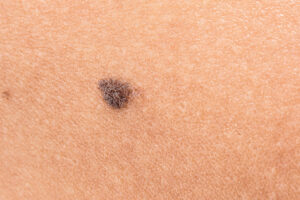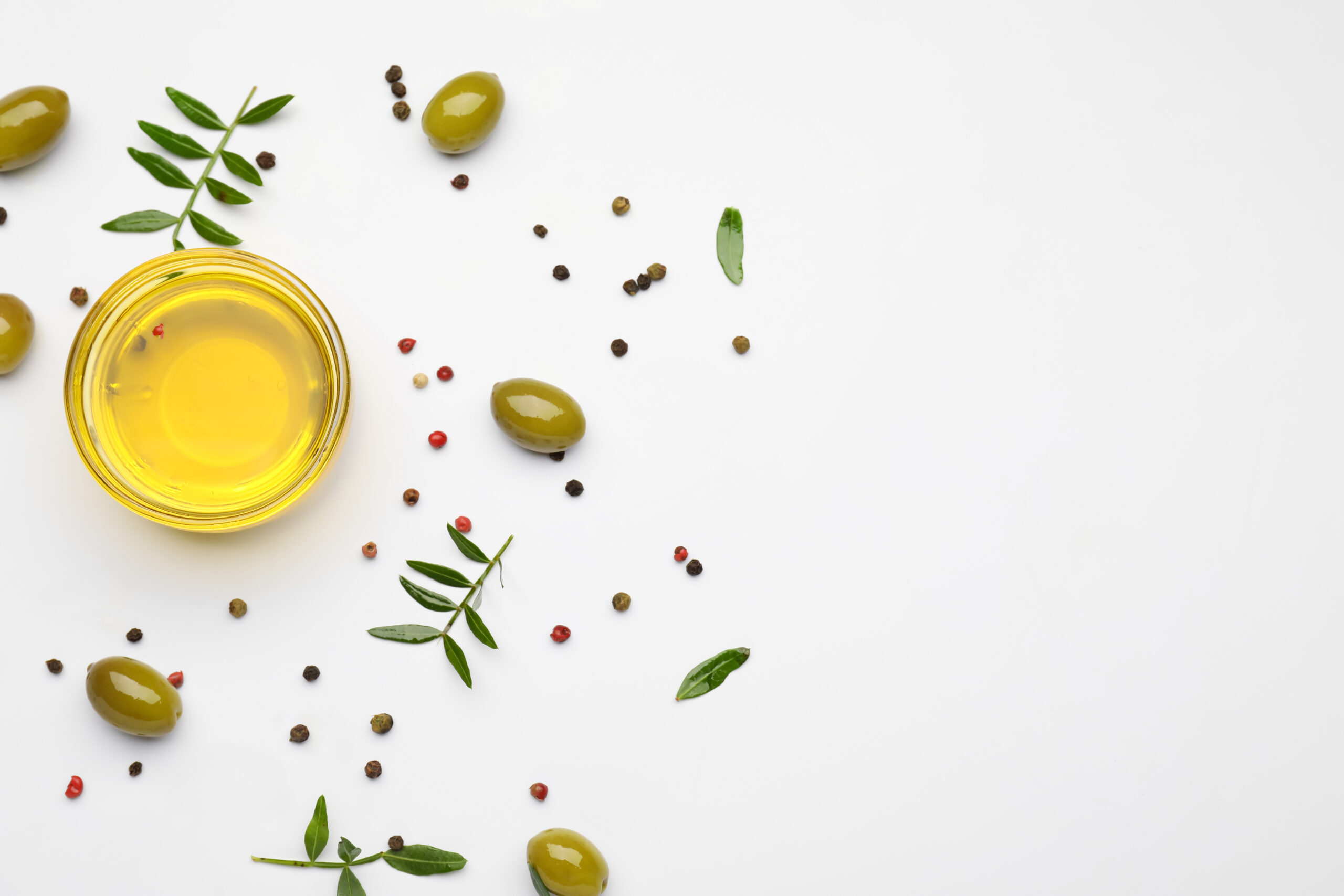Few self-care regimens can compare to the relaxing embrace of a massage. Adding olive oil to the mix takes this experience to a new level. Olive oil, known for its a culinary background, also provides numerous health advantages when applied to the skin.
Olive oil, derived from the fruits of olive tree also known as Olea europaea has been revered for generations due to its exceptional characteristics. Aside from its culinary uses, this liquid gold includes a wealth of nutrients that are good to the health of our skin.
Olive oil is a rejuvenating balm that contains antioxidants, vitamins E and K, and anti-inflammatory chemicals, as well as monounsaturated fats.
This blog explores evidence-backed olive oil massage benefits with some preliminary benefits. Let us go discover its transforming effects on body and mind.
Olive Oil Massage Benefits
Below are some potential benefits of including olive oil massage in your routine.
1. Provides Antioxidative Support to the Skin
Olive oil contains over 200 different compounds, including sterols, carotenoids, and phenolic compounds. It is also rich in oleic acid, with smaller amounts of linoleic and palmitic acids, which may support antioxidative support to the when applied topically.
The main phenolic subclasses present in olive oil are phenolic alcohols, phenolic acids, flavonoids, lignans, and secoiridoids. Hydrophilic phenols are the most common antioxidants in present in olive oil, which are even more effective than vitamin E at fighting oxidation.
Antioxidants are the substances that protect cells from damage caused by oxidative stress and free radicals. They neutralize harmful molecules, reduce inflammation, and support overall health by preventing cell damage that can lead to chronic diseases and premature aging.
Olive oil also includes other compounds like vitamins K, D, E, beta-carotene, and ubiquinol 10, which have antioxidant properties, protecting your skin from oxidative stress and free radical damage.
2. May Moisturize and Nourish the Skin
Dry, dehydrated skin cannot withstand olive oil’s moisturizing characteristics. When massaged into the skin, olive oil penetrates deeply, providing moisture to dry cells and sealing it in for long-lasting hydration.
Olive oil has emollient properties, means it has softening and soothing effect especially to the skin, which can help soften dry skin and improve skin texture.
Olive oil may also have antioxidative and moisturizing properties and can be used to treat people with seborrheic dermatitis, acne, psoriasis, and atopic dermatitis.
Several studies have explored the ideal triglyceride composition of vegetable oils and their impact on the skin’s lipid barrier—our natural defense against moisture loss and irritants. When this barrier is compromised, it can lead to dryness, irritation, and increased sensitivity.
The ratio of oleic acid to linoleic acid in vegetable oils is believed to play a crucial role in maintaining skin barrier integrity. Olive oil, which contains over 70% oleic acid and about 10% linoleic acid, has been found beneficial for dry skin.
However, research also suggests that its high oleic acid content (76.3%) may disrupt the skin’s lipid barrier over time, potentially leading to increased moisture loss.
While olive oil can provide short-term hydration and leave skin feeling soft and smooth, those with sensitive or compromised skin barriers may need to use it cautiously. For best results, it may be beneficial to pair it with oils rich in linoleic acid to support overall skin health.
3. Anti Ageing Properties
Olive oil is an excellent source of bioactive compounds that may have anti-aging properties.
It is particularly rich in antioxidants such as polyphenols and vitamin E, both known for their rejuvenating effects that help support natural aging.
Over time, oxidative stress and free radical damage can break down collagen, leading to early signs of aging. The antioxidants in olive oil help protect the skin by neutralizing free radicals, preventing premature aging, and promoting a youthful appearance.
However, most of these benefits are associated with olive oil consumption rather than topical application, highlighting the need for more research on whether olive oil massages truly provide anti-aging effects.
4. May Promote Healing of Wounds
Wounds form when the skin, mucous membranes, or tissues are damaged due to disease, accidents, or intentional injuries. Proper wound care is essential for faster healing and preventing infections.
Olives are known for their antioxidant, antibacterial, anti-inflammatory, and antiviral properties, which help repair epithelial tissue and support the natural wound healing process.
Olive oil, rich in fatty acids like oleic acid and linoleic acid, plays a crucial role in skin regeneration. Research suggests that oleic acid can replace linoleic acid in certain processes, while linoleic acid is believed to regulate inflammation and stimulate skin renewal—both of which contribute to faster wound healing.
Studies suggest it may aid in healing diabetic wounds, pressure ulcers, perineal injuries, and chronic skin conditions by reducing inflammation, promoting skin regeneration, and improving blood circulation—making it a natural alternative to chemical-based treatments.
Whether you’re dealing with eczema, psoriasis, or dermatitis, gentle massage with olive oil may help soothe redness, swelling, and irritation, potentially supporting skin healing and relaxation. However, medical treatment should always be the first step. It’s best to consult your doctor before using olive oil on skin conditions or open wounds like ulcers.
5. May Reduce the Risk of Skin Cancer

Extensive exposure to ultraviolet (UV) radiation leads to increased formation of free radicals. This causes oxidative stress, which damages skin cells, changing their gene expression, which not only leads to premature aging, but also promotes melanoma and non-melanoma skin cancers.
Olive oil is rich in antioxidants, which may neutralize the free radicals and may prevent skin cancer.
Animal studies suggest that topical application of extra virgin olive oil may help reduce the risk of skin cancer caused by UVB radiation. However, extensive research, especially clinical studies in humans, is needed to confirm these findings.
6. May Improve Blood Circulation
The rhythmic motions of massage, along with the soothing properties of olive oil, improve blood circulation throughout the body. Improved circulation ensures that oxygen and nutrients reach all cells while efficiently removing metabolic waste and pollutants.
This energizing effect improves overall health and energy, leaving you feeling energized and stimulated.

Tips for an Optimal Experience: Elevate Your Olive Oil Massage Benefits
To make the most of your olive oil massage experience, consider the following tips:
- Choose high-quality, extra virgin olive oil for maximum nutritional content. Its massage reduces chronic pain and inflammation.
- Warm the oil slightly before applying it to the skin for enhanced absorption and comfort.
- Customize your massage with gentle strokes and varying pressure to suit your comfort level and target specific areas of tension.
- Enhance the therapeutic effects by incorporating essential oils like lavender, chamomile, or peppermint.
- Set the mood with soft lighting, calming music, and a tranquil ambiance to create a spa-like atmosphere.
Can we do oil massage daily?
You can incorporate oil massage into your skincare routine 2-3 times a week, but the frequency and type of oil used may vary depending on individual preferences and skin type.
Additionally, using lighter oils like jojoba or grapeseed oil may be more suitable for daily use, while heavier oils like coconut or olive oil may be better suited for occasional use or specific concerns. Here are general recommendations:
- For Overall Wellness & Relaxation: 2–3 times per week – Helps reduce stress, improve circulation, and nourish the skin.
- For Skin Hydration & Nourishment: Daily or every other day – Beneficial for dry or sensitive skin, but use light oils to avoid clogged pores.
- For Pain Relief & Muscle Recovery: As needed (2–4 times per week) – Helps with sore muscles, joint pain, and inflammation. Warm oil massages can be particularly effective.
- For Scalp & Hair Health: 1–2 times per week – Helps improve blood circulation, reduce dandruff, and promote hair growth.
Always patch test new oils and listen to your body’s response to determine the best routine for you.
Closing Thoughts
Olive oil massage goes beyond relaxation—it’s a holistic practice that nurtures the body, mind, and spirit. While research on its specific effects is limited, its rich antioxidant and nutrient profile suggests promising benefits for skin health.
That said, an olive oil massage still offers a moment of physical and mental relief from the stresses of daily life.
Discover more about
Top 10 Iron Rich Indian Foods to Include in Your Diet
8 Mutton Liver Benefits; From Proteins to Vitamins
